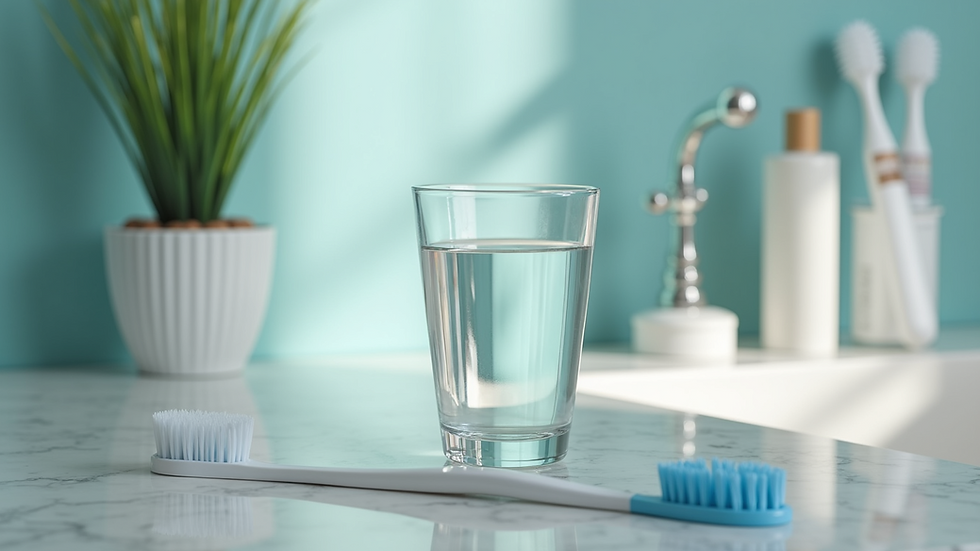- Jane Peterson
Oral hygiene is a vital part of overall health, yet it is often overlooked or improperly managed. Mastering mouth care skills is essential for caregivers, healthcare professionals, and individuals alike to ensure optimal oral health. This comprehensive guide will explore practical techniques, foundational knowledge, and actionable tips to enhance your mouth care routine or training approach.

Developing Effective Mouth Care Skills
To develop effective mouth care skills, it is important to understand the basics of oral hygiene and how to apply them in daily practice. Whether you are caring for yourself or others, these skills can prevent common dental problems such as cavities, gum disease, and bad breath.
Key Techniques for Daily Mouth Care
Brushing: Use a soft-bristled toothbrush and fluoride toothpaste. Brush gently in circular motions for at least two minutes, covering all surfaces of the teeth.
Flossing: Clean between teeth daily to remove plaque and food particles that brushing misses.
Mouthwash: Use an antimicrobial or fluoride mouthwash to reduce bacteria and strengthen enamel.
Tongue Cleaning: Use a tongue scraper or toothbrush to remove bacteria from the tongue surface.
Regular Dental Check-ups: Visit a dentist every six months for professional cleaning and examination.
These techniques form the foundation of good oral hygiene and should be taught clearly during any mouth care training.

Enhancing Mouth Care Skills Through Training
Training is crucial to mastering mouth care skills, especially for caregivers and healthcare workers who assist others with oral hygiene. Structured training programs provide knowledge, confidence, and practical experience.
Benefits of Structured Training
Improved Technique: Hands-on practice helps learners perfect brushing and flossing methods.
Increased Awareness: Understanding oral health conditions and their prevention.
Better Communication: Learning how to explain and encourage good oral hygiene habits.
Safety and Comfort: Training ensures care is provided safely and comfortably, especially for vulnerable individuals.
One effective way to gain these skills is through mouth care training, which offers comprehensive courses designed to improve oral care knowledge and practical ability.

What are the five basics of oral health?
Understanding the five basics of oral health is essential for mastering mouth care skills. These fundamentals guide daily practices and help maintain a healthy mouth.
Clean Teeth and Gums: Regular brushing and flossing remove plaque and prevent decay.
Balanced Diet: Limiting sugary foods and drinks reduces the risk of cavities.
Hydration: Drinking water helps wash away food particles and keeps saliva flowing.
Avoid Tobacco: Smoking and chewing tobacco increase the risk of gum disease and oral cancer.
Regular Dental Visits: Professional care detects and treats problems early.
By focusing on these basics, individuals can maintain strong teeth and healthy gums, reducing the need for complex dental treatments.
Practical Tips for Teaching Mouth Care Skills
When teaching mouth care skills, whether in a professional setting or at home, consider these practical tips to enhance learning and retention:
Use Visual Aids: Diagrams, videos, and live demonstrations help clarify techniques.
Encourage Hands-On Practice: Allow learners to practice brushing and flossing on models or themselves.
Provide Clear Instructions: Use simple language and step-by-step guidance.
Address Individual Needs: Adapt techniques for people with disabilities, dentures, or sensitive gums.
Reinforce Regularly: Consistent reminders and follow-ups help maintain good habits.
These strategies ensure that mouth care training is effective and accessible to all learners.
Integrating Mouth Care Skills into Daily Life
Mastering mouth care skills is not just about learning techniques but also about integrating them into everyday routines. Here are some actionable recommendations:
Set a Schedule: Brush and floss at the same times each day to build a habit.
Use Reminders: Alarms or notes can prompt regular oral care.
Choose the Right Tools: Electric toothbrushes, interdental brushes, and fluoride toothpaste can improve effectiveness.
Monitor Progress: Keep a diary or checklist to track oral hygiene practices.
Seek Support: Encourage family members or caregivers to assist and motivate.
By embedding these habits into daily life, oral health can be maintained consistently and effectively.
Mastering mouth care skills is a valuable investment in health and wellbeing. With the right knowledge, training, and practical application, anyone can achieve excellent oral hygiene and prevent common dental issues. For those seeking to enhance their expertise, professional mouth care training offers structured learning and support to build confidence and competence in oral care.







